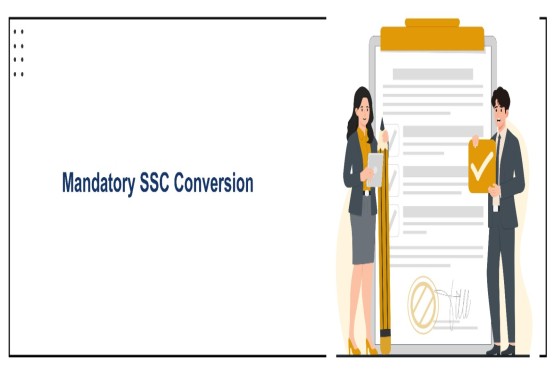A Section 8 Company, registered under the Companies Act, 2013, is a non-profit organization established to promote charitable objectives such as commerce, education, art, science, sports, social welfare, and similar activities. These companies play a significant role in uplifting underprivileged communities and supporting social causes across India.
Despite their non-profit nature, Section 8 Companies are required to follow certain annual compliances, much like other corporate entities. These compliances ensure transparency, accountability, and smooth functioning while also safeguarding the company’s legal status. Adhering to the prescribed regulatory framework not only strengthens credibility but also helps such organizations continue receiving the benefits and exemptions granted under law.
In this article, we will provide a detailed overview of the annual compliances of Section 8 Companies, highlighting the essential legal responsibilities that must be fulfilled to remain compliant.
What is Section 8?
According to the Companies Act, 2013, a Section 8 Company is a special type of legal entity established with the objective of promoting charitable, philanthropic, educational, religious, social, cultural, or environmental purposes. Unlike profit-oriented companies, the primary goal of a Section 8 Company is not to generate profits but to contribute to the welfare and development of society.
A distinctive feature of Section 8 Companies is that any surplus income or profits earned must be applied solely towards advancing their stated objectives and cannot be distributed as dividends to members. Recognized as independent legal entities, these companies are also exempt from using the term “Limited” or “Private Limited” in their names, reflecting their non-profit character.
Additionally, Section 8 Companies often enjoy various exemptions and benefits under the Companies Act, 2013, the Income Tax Act, and other applicable laws, while still being subject to specific regulatory and compliance requirements to ensure accountability and transparency.
Annual Compliances of Section 8 Company
A Section 8 Company, though established with the primary goal of serving charitable and social purposes, is still bound by several regulatory and legal requirements under the Companies Act, 2013 and the Income Tax Act. These annual compliances ensure transparency, accountability, and good governance while allowing the company to continue enjoying the benefits and exemptions available to it.
Below is a detailed overview of the mandatory annual compliances and event-based compliances applicable to Section 8 Companies in India:
Appointment of Auditor: Filing Form ADT-1
Under Section 139 of the Companies Act, 2013, every Section 8 Company is required to appoint a statutory auditor within 15 days of its Annual General Meeting (AGM). The details of this appointment must be communicated to the Ministry of Corporate Affairs (MCA) through the filing of Form ADT-1. The auditor is appointed for a term of up to five financial years and is entrusted with the responsibility of auditing the company’s financial statements on an annual basis. Failure to file Form ADT-1 within the prescribed timeline may result in penalties for the company.
Maintaining Statutory Registers
Section 8 Companies are required to maintain statutory registers in accordance with the provisions of the Companies Act, 2013. These registers must include details of loans obtained by the company, complete information about its directors along with any changes in directorship, records of charges created on the company’s assets, and details of investments made. Proper maintenance of these registers is essential as it ensures accurate record-keeping, promotes transparency, and upholds regulatory compliance.
Conducting Meetings
Section 8 Companies are required to conduct various meetings in compliance with statutory requirements. An Annual General Meeting (AGM) must be held every year within six months from the end of the financial year to review and decide on important matters. Additionally, the company must hold Board Meetings at least four times during the year, ensuring that the gap between two meetings does not exceed 120 days. In situations where urgent matters arise, an Extraordinary General Meeting (EGM) may be convened, while Committee or Creditors’ Meetings, if applicable, are conducted to address specific governance or restructuring requirements.
Preparation and Filing of Board of Directors’ Report
The Directors of a Section 8 Company are required to prepare a comprehensive Board’s Report that provides details about the company’s compliance status, corporate social responsibility (CSR) activities (if applicable), accounting practices, and other relevant annexures. This report must then be filed with the Registrar of Companies (RoC) along with Form AOC-4, ensuring transparency and adherence to statutory requirements.
Preparation and Filing of Financial Statements: Form AOC-4
Section 8 Companies are required to prepare financial statements comprising the Balance Sheet, Profit and Loss Account, Cash Flow Statement, and Notes to Accounts. These financial statements must be duly audited by the appointed statutory auditor and filed with the Registrar of Companies (RoC) through Form AOC-4 within 30 days from the date of the Annual General Meeting (AGM). Any delay in filing attracts penalties, making timely compliance essential for maintaining transparency and legal standing.
Filing of Annual Return: Form MGT-7
Section 8 Companies are required to file an Annual Return with the Registrar of Companies (RoC) using Form MGT-7 within 60 days from the date of the Annual General Meeting (AGM). The annual return provides essential information about the company, including details of its directors, members, and key activities carried out during the year. Failure to file the return within the prescribed timeline attracts penalties, making it a crucial compliance requirement.
Filing of Income Tax Return
Section 8 Companies are required to file their Income Tax Return (ITR) by 30th September of every financial year. If the company is registered under Sections 12A and 80G of the Income Tax Act, it can avail of tax exemptions, provided it complies with the conditions specified under Section 11, which mandate that the income must be applied solely towards charitable or specified purposes.
Tax Compliances and Exemptions
Section 8 Companies can avail various income tax exemptions under the Income Tax Act by fulfilling certain conditions. To begin with, they must register with the Principal Commissioner of Income Tax using Form 10A under Section 12A. They are also required to comply with the provisions of Section 11, which mandate that the income of the company be applied exclusively towards charitable, religious, or educational purposes. Additionally, by filing Form 10B, Section 8 Companies can obtain approval under Section 80G, which enables donors to claim tax benefits on the contributions made to the company.
Event-Based Compliances
Apart from annual obligations, Section 8 Companies are also required to comply with certain event-based compliances that arise out of specific changes within the organization. Any change in the office bearers or directors of the company must be reported to the Registrar of Companies (RoC) within 30 days. Similarly, a change in the registered office must be notified to the RoC within 15 days. If the company intends to change its name, prior approval from the Central Government is mandatory. Moreover, any modification in the company’s objectives must also be reported to the RoC for review and approval, ensuring that the organization continues to operate within the framework of its Section 8 status.
Penalties for Non-Compliance in Section 8 Companies
Just like any other registered company, Section 8 Companies must strictly adhere to the rules and regulations prescribed under the Companies Act, 2013 and related laws. Non-compliance with these obligations can lead to severe consequences, not only for the company but also for its directors and officers. The key penalties are as follows:
Revocation of License
If the Central Government determines that a Section 8 Company is operating dishonestly, fraudulently, or against its stated objectives, it has the authority to revoke the company’s license. Once the license is revoked, the company may lose its Section 8 status and will no longer be able to function as a non-profit entity.
Monetary Penalties on the Company
A Section 8 Company found guilty of non-compliance can face a minimum fine of Rs.10 lakh, which may extend up to Rs.1 crore, depending on the nature and severity of the violation.
Penalties on Directors and Officers
The directors and every officer in default may face imprisonment and/or monetary fines. The fines may go up to Rs.25 lakh, in addition to possible imprisonment for serious offences.
Fraudulent Operations
If it is established that the company’s operations were carried out fraudulently, the officers in default will be liable under Section 447 of the Companies Act, 2013.
This provision imposes stringent punishment for fraud, which can include imprisonment of up to 10 years and heavy monetary fines, depending on the gravity of the offence.
Loss of Section 8 Status
Persistent or serious non-compliance may result in the loss of Section 8 recognition, thereby taking away the company’s tax benefits, exemptions, and not-for-profit status.
Conclusion
Section 8 Companies, while established for noble and charitable purposes, must diligently adhere to the compliances laid down under the Companies Act, 2013 and the Income Tax Act. These compliances not only ensure smooth governance, accountability, and transparency but also safeguard the organization’s credibility and legal status. Timely filing of returns, proper maintenance of records, and reporting of event-based changes are essential for retaining the benefits, exemptions, and recognition that come with being a Section 8 Company. Non-compliance, on the other hand, can attract severe penalties, revocation of license, and even loss of non-profit status. Therefore, consistent adherence to statutory obligations is vital for a Section 8 Company to continue fulfilling its mission of serving society while remaining legally protected and financially sustainable.
Frequently Asked Questions (FAQs)
Q1. What is a Section 8 Company?
Ans. A Section 8 Company is a non-profit organization registered under the Companies Act, 2013, formed for charitable, educational, social, cultural, religious, or environmental purposes.
Q2. Do Section 8 Companies have to follow annual compliances like private or public companies?
Ans. Yes, despite being non-profit entities, Section 8 Companies must follow annual compliances under the Companies Act, 2013 and the Income Tax Act.
Q3. What are the key annual compliances of a Section 8 Company?
Ans. Some key compliances include:
-
Appointment of auditor and filing Form ADT-1
-
Conducting Board Meetings and Annual General Meeting (AGM)
-
Filing of financial statements (Form AOC-4)
-
Filing of annual return (Form MGT-7)
-
Filing of Income Tax Return (ITR)
Q4. Are Section 8 Companies required to pay income tax?
Ans. Section 8 Companies can claim exemptions under Sections 11, 12A, and 80G of the Income Tax Act, provided their income is applied solely towards charitable purposes and they are properly registered.
Q5. What is the due date for filing annual returns of a Section 8 Company?
Ans. Form AOC-4 (Financial Statements) → Within 30 days from the date of AGM.
-
Form MGT-7 (Annual Return) → Within 60 days from the date of AGM.
-
ITR Filing → By 30th September of the assessment year.
Q6. What are event-based compliances for Section 8 Companies?
Ans. These include filing for changes in directors, registered office, company name, or alteration of objectives, all of which must be reported to the RoC within the prescribed timelines.
Q7. What are the penalties for non-compliance by a Section 8 Company?
Ans. Non-compliance can lead to:
-
Heavy monetary fines (Rs.10 lakh – Rs.1 crore)
-
Penalties on directors/officers (up to Rs.25 lakh and/or imprisonment)
-
Revocation of Section 8 license and loss of non-profit status
-
Liability under fraud provisions of the Companies Act, 2013
Q8. Why is annual compliance important for Section 8 Companies?
Ans. Compliance ensures transparency, accountability, and credibility. It also safeguards the company’s legal standing and allows it to continue availing tax exemptions and government recognition.











































































_crop10_thumb.jpg)


































































_crop10_thumb.jpg)
_crop10_thumb.jpg)



_crop10_thumb.jpg)


_crop10_thumb.jpg)





_crop10_thumb.jpg)

_crop10_thumb.jpg)














-suratgujarat-section-158_crop10_thumb.jpg)
-suratgujarat_crop10_thumb.jpg)
-(33)_crop10_thumb.jpg)



-ahmedabad_crop10_thumb.jpg)
-learn_crop10_thumb.jpg)

-learnn_crop10_thumb.jpg)



























































_crop10_thumb.jpg)























_Guidelines_learn_crop10_thumb.jpg)























_learn_crop10_thumb.jpg)
_crop10_thumb.jpeg)










_crop10_thumb.jpg)




_Second_Amendment_Rules,_2025_learn_crop10_thumb.jpg)







_learn_crop10_thumb.jpg)












































_learn_crop10_thumb.jpeg)






















_learn_crop10_thumb.jpg)



_rd_roc_learn_crop10_thumb.jpg)
















_learn_crop10_thumb.jpg)














_learn_crop10_thumb.jpg)
_Learn_crop10_thumb.jpg)











































_learn_crop10_thumb.jpg)




_learn_crop10_thumb.jpg)













_crop10_thumb.jpeg)


















